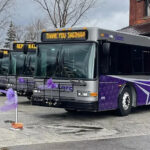LANSING, MI — The Michigan Department of Lifelong Education, Advancement, and Potential (MiLEAP) has officially opened applications for its Universal Free Application for Federal Student Aid (FAFSA) Challenge. This new $10 million initiative aims to help local school districts and public school academies implement a universal FAFSA policy to boost FAFSA completion rates among high school seniors across Michigan.
“MiLEAP is excited to present this incredible opportunity for Michigan schools to ignite the potential of students all across the state,” said Dr. Beverly Walker-Griffea, director of MiLEAP. “We invite every district to consider taking on the Universal FAFSA Challenge. Together, we can ensure that every student has access to the financial resources they need to continue their educational journeys and position themselves for future success.”
The funding will allow districts to make FAFSA completion a graduation requirement, with an option for students to opt out if necessary. Schools that participate will use the funds to implement evidence-based strategies, offering critical support to students as they navigate the FAFSA process.
“Schools play a critical role in helping students discover their passions and build a path to achieving their goals after high school. Completing the FAFSA helps students make informed choices about their next steps,” said Michelle Richard, deputy director of Higher Education at MiLEAP. “It is the key to unlocking valuable federal and state funding opportunities, such as the Michigan Achievement Scholarship and Community College Guarantee. We’re eager to see districts rise to this challenge to help students unleash their potential and achieve their dreams.”
Applications for the Universal FAFSA Challenge are due by Dec. 1, 2024. Funding will be distributed based on the number of 12th-grade students in each qualifying district, with awards expected to be granted by Jan. 31, 2025.
For more details on the application process and additional resources, visit the MiLEAP Office of Higher Education website.










